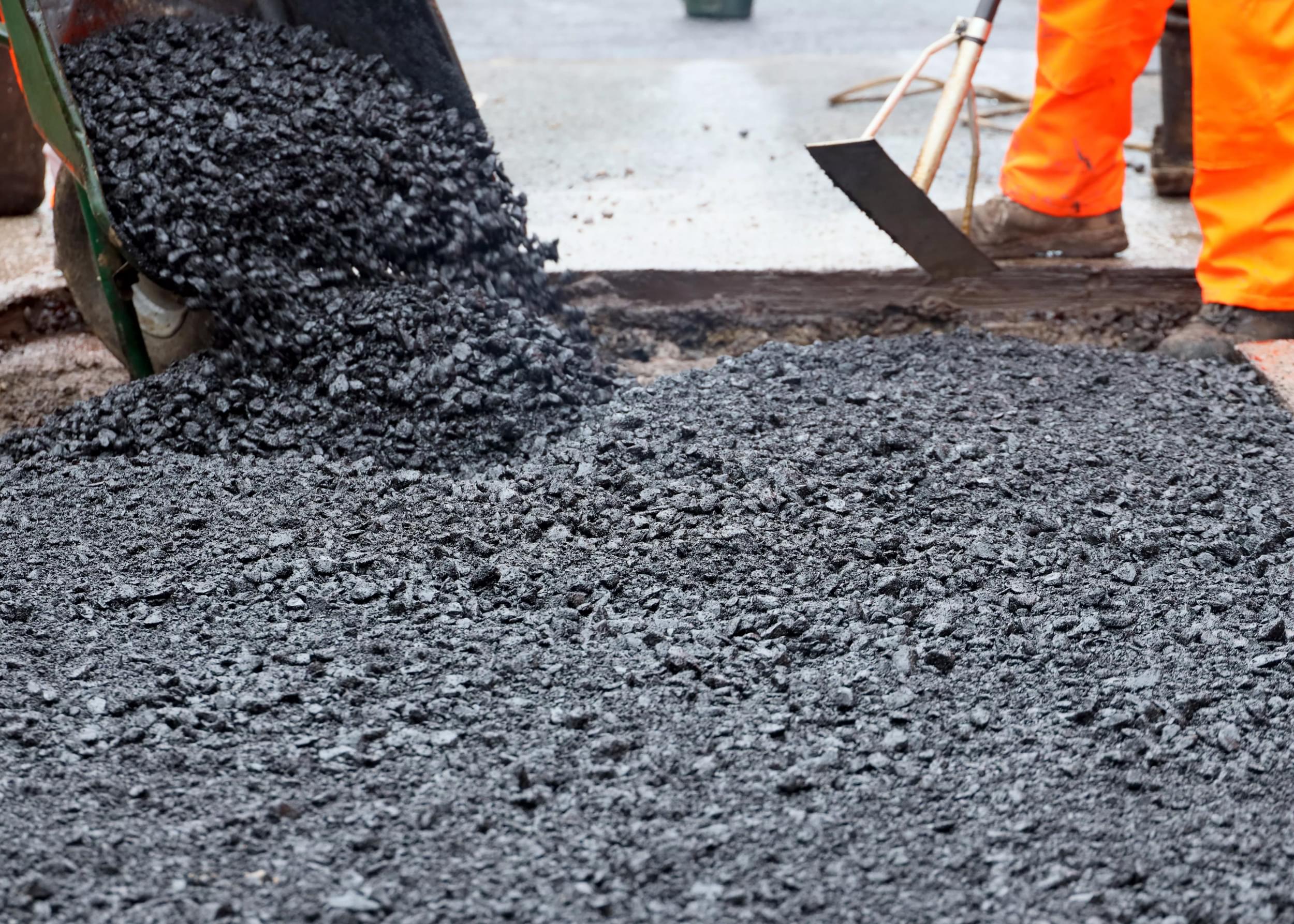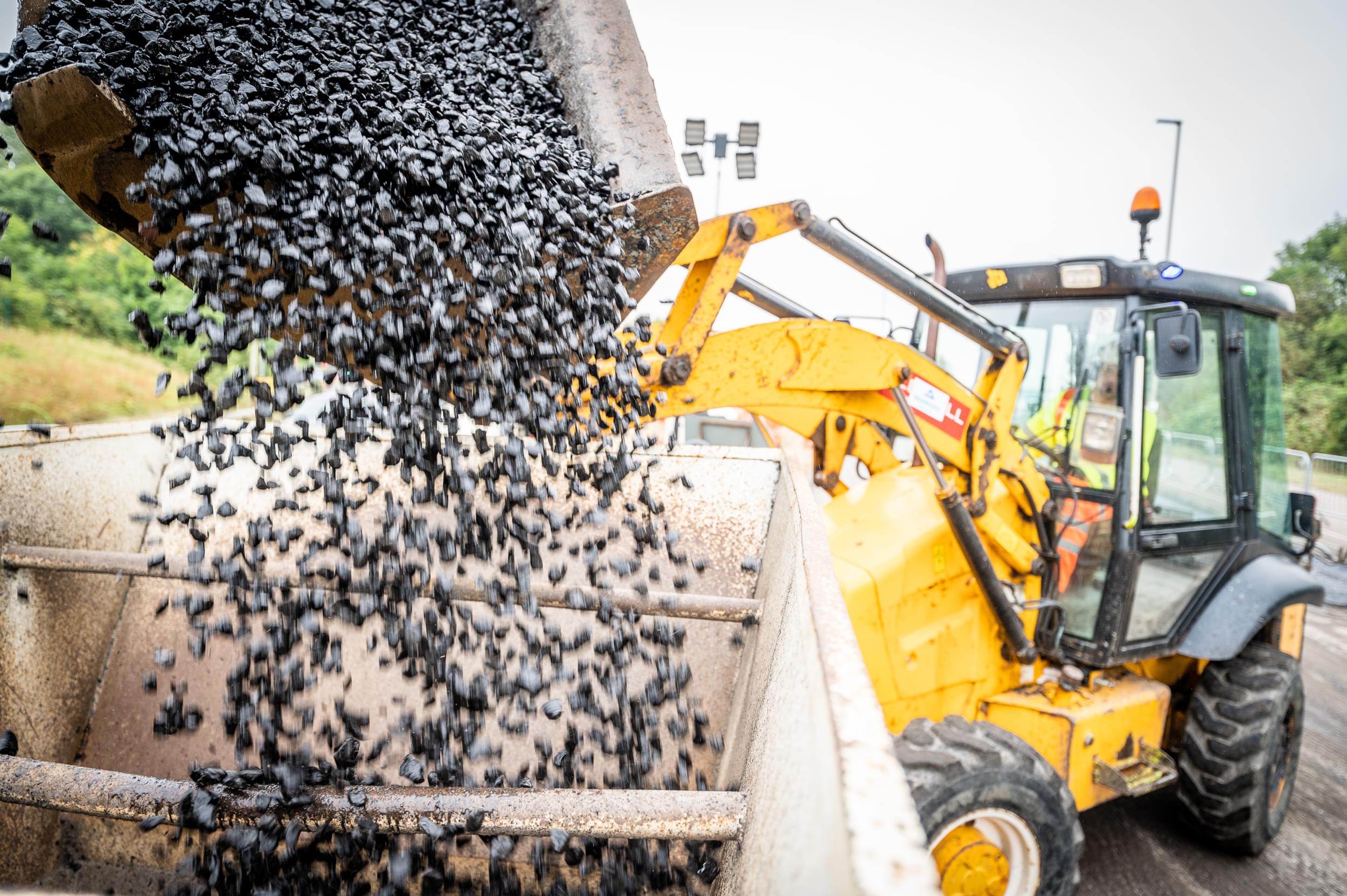

Road infrastructure demand is vast, but climate change calls for lower emissions. Neil Leake, national technical manager at Aggregate Industries explores the latest asphalt innovation and the significant role it can play in creating a low-carbon transportation network.
Join other savvy professionals just like you at CIHT. We are committed to fulfilling your professional development needs throughout your career
It is easy to see why asphalt makes up 95 per cent of UK road infrastructure.1 Thanks to its inherent qualities of high strength, durability and flexibility, it offers an incredibly effective surfacing solution – and not just roads but for footpaths, playgrounds, cycle ways and car parks too.
But, does it have any drawbacks? While asphalts still deliver low carbon solutions when compared against other construction materials, there is the issue that asphalt is not always conducive to a sustainable world. This is because asphalt production is traditionally a resource-intensive process and the production and application of it releases harmful emissions into the atmosphere.
Thus, as the climate challenge continues to escalate, achieving the vast emissions reductions needed from the transport sector requires a fresh approach.
The good news is that the asphalt industry continues to keep pace with the implementation of more sustainable alternatives and multiple efforts to reduce the carbon impact associated with the manufacturing process. The task now lies in deploying these key solutions – and at pace.


Neil Leake, National Technical Manager at Aggregate Industries’ Surfacing Solutions division
One of the most important climate-relevant innovations in all of this is perhaps one of the most obvious – warm mix asphalt.
To understand why, we must first look at the process involved. Traditional hot-mix asphalt is produced at temperatures of 170-190°C, enabling the bitumen to fully coat the aggregate and protect the stone to ensure a durable product. However, warm-mix asphalt is produced at temperatures of 130-150°C. During the production process, a chemical surface active agent (surfactant) is added, which reduces the coefficient of friction in the mix, allowing bitumen and aggregate to slide more easily over each other. The 40°C temperature reduction at the production stage significantly reduces energy consumption and associated carbon emissions during the manufacturing process. The result is an embodied carbon reduction of 8-10 per cent compared to standard hot mix asphalt.
Better still, here at Aggregate Industries we recently committed to supplying warm mix asphalt as standard across all base and binder asphalts, together with most surface course materials. The result is that customers can unlock the full raft of environmental benefits associated with warm-mix asphalt – including reduced emissions and increased efficiencies – without any compromise to performance or having to pay over the odds for a greener product.

Achieving wide-reaching sustainable processes and products, reaching climate neutrality, of course, also requires achieving much more with much less.
Cue Foamix® made from 92 per cent recycled materials, including 85 per cent reclaimed asphalt pavement (RAP), Foamix® promotes a circular economy approach to road construction by drastically reducing the requirement for virgin aggregates. As it is manufactured as a cold mix, with the ‘ingredients’ carefully bound together by a ‘foam’ of bitumen and water, it promotes a low manufacturing carbon footprint too. More so, thanks to Aggregate Industries’ mobile mixing plants, it can be manufactured on site, allowing customers to source planings locally – thereby minimising HGV movements across the local road network, construction times, user disruption and delivering a significantly lower scheme carbon footprint.
What’s great about this approach is that it cannot only drastically reduce the raw material output but the associated logistical requirement. This can be found in Aggregate Industries’ recent work in creating a low carbon pavement solution for the resurfacing of the A46 Warwick northbound carriageway – where 17,432 tonnes of material were reused and over 82,000 road miles were saved.

But this is just the beginning with much more to come.
From new developments in biogenic bitumen (a sustainable binder alternative made from waste materials and other natural products) and self-healing asphalt (a new asphalt designed to work against damage over time) through to carbon capture, carbon negative aggregates and renewable self-generation, there are a host of new and exciting opportunities just around the corner to progress in our aim to deliver a carbon neutral construction material and revolutionise the means of asphalt production and construction on the road ahead.
As we look to the future, there is no disputing the role that the road infrastructure sector must play in making net zero happen. For the future-forward operator then, the recommendation is to take heed of the emerging low carbon asphalt category as a way to gain a competitive edge amid an economy where it will, ultimately, be the survival of the greenest.
For further information please visit www.aggregate.com

The opinions expressed in this article are those of the authors. They do not purport to reflect the opinions or views of the CIHT or its members. Neither the CIHT nor any person acting on their behalf may be held responsible for the use which may be made of the information contained therein.
Note to Editor:
1 https://www.asphaltuk.org/uk-asphalt/
Aggregate Industries is delivering growth through sustainable thinking. Committed to playing a significant role in enabling the UK to transition to net zero, Aggregate Industries is driving decarbonisation across the construction materials sector.
With a broad, established range of low carbon solutions and a focus on the circular economy, Aggregate Industries continues to invest in R&D and innovation, working in partnership with sustainability-focused stakeholders, with the goal of becoming the UK’s leading supplier of sustainable construction materials.
It is the first company to be certificated to BES 6001, The Framework Standard for the Responsible Sourcing of Construction Products, developed by the BRE (Building Research Establishment).
Aggregate Industries UK is a proud member of the Holcim Group. More information is available on www.aggregate.com
Holcim builds progress for people and the planet. As a global leader in innovative and sustainable building solutions, Holcim is enabling greener cities, smarter infrastructure and improving living standards around the world. With sustainability at the core of its strategy Holcim is becoming a net zero company, with its people and communities at the heart of its success. The company is driving the circular economy as a world leader in recycling to build more with less. Holcim is the company behind some of the world’s most trusted brands in the building sector including ACC, Aggregate Industries, Ambuja Cement, Disensa, Firestone Building Products, Geocycle, Holcim and Lafarge. Holcim is 70,000 people around the world who are passionate about building progress for people and the planet through four business segments: Cement, Ready-Mix Concrete, Aggregates and Solutions & Products.
More information is available on www.holcim.com
Join other savvy professionals just like you at CIHT. We are committed to fulfilling your professional development needs throughout your career
Sign up to the APM Newsletter.

{{item.AuthorName}} {{item.AuthorName}} says on {{item.DateFormattedString}}: